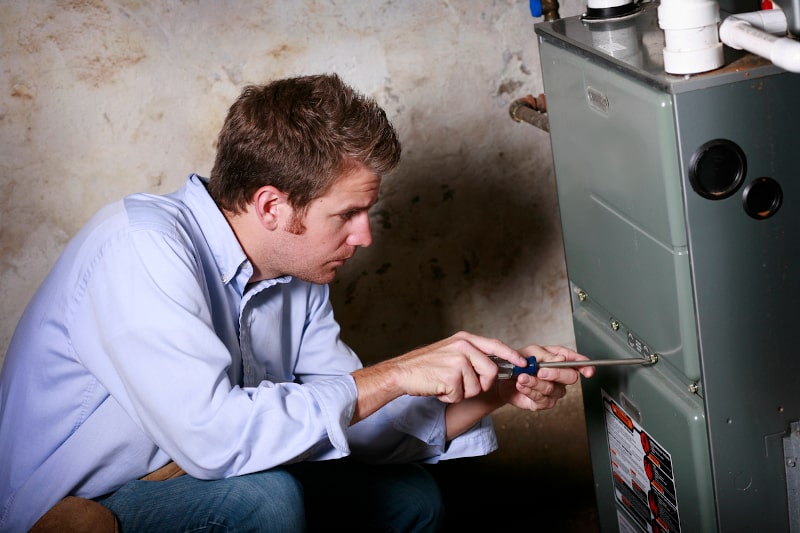While furnaces are the common heating system installed in homes throughout Damascus, MD, a lot of myths surround their use. Use this guide to understand seven myths about furnaces and the facts you should know.
1. You Should Use Your Furnace Until It Simply Stops Working
Some people believe that you should keep using an older furnace until your furnace suffers a catastrophic failure. In reality, the expected service life for gas-fueled furnaces is 15 to 20 years. Even if it continues running, its efficiency dramatically declines, leaving you paying more for heating and susceptible to expensive repairs.
Further, furnace technology continues improving, so better furnaces are available once you exceed the 20-year mark. Additionally, by planning your furnace replacement, you can access off-season deals, reducing your installation cost.
2. A Furnace Doesn’t Need Regular Maintenance
You’ve likely seen advertisements from HVAC companies recommending that your furnace needs annual maintenance. Some well-meaning friends or family may have suggested that you don’t need furnace maintenance.
In reality, your furnace is a mechanical system that wears over time, with some components and connections loosening. Further, it gets dust and dirt that builds up inside it, which will interfere with its performance. Maintenance includes deep cleaning, tightening and tuning of internal components, and testing for sub-optimal performance.
3. Close Vents in Unused Rooms to Save Money
When you close vents, it prevents heated air from entering the room, making that room cooler. The challenge with this approach is the fundamental physics of how HVAC systems work, including balancing and circulation.
Heat circulates throughout a home because of the positive pressure produced at supply vents and negative pressure at return vents. Not only will this impact comfort, but it also increases operational stress as the furnace runs.
4. You Should Use Space Heaters to Correct Cold Spots
It’s common to run out and get a space heater when there are areas of a home that aren’t comfortable. While they may help in the short term, they will do so in the most expensive way possible. Most indoor space heaters are electric resistance heaters, which experts consider the most expensive form of heating.
Rather than putting in space heaters, look for issues with your central system that may prevent even heating. Start by checking your air filter and replacing it if necessary, and make sure all of your vents are open. Have a professional evaluate your system, including checking the air balance, to find the underlying cause of uneven heating.
5. Bigger Furnaces Will Heat More Effectively
Larger furnaces produce more heat, as measured in British thermal units (BTU). While you may think more heat will help heat your home faster, this isn’t how the system works. Rather, producing more heat than is appropriate for your home causes the system to overheat and short cycle.
The proper size furnace for your home is critical for effectively heating your home and reducing repair and heating costs. A professional will evaluate many factors to determine the precise size furnace for your home.
6. High-Efficiency Furnaces Are the Solution to Improving Efficiency
Given the name, many property owners believe getting a high-efficiency furnace will improve their heating efficiency. Furnace efficiency only considers how much heat moves out into the ducts rather than out with the exhaust. Yes, a more efficient system is important to get the highest efficiency possible.
However, other factors play a significant role in how well any system heats your home. These factors include how well-sealed and insulated your ducts are, your home’s insulation, and even indoor air quality.
7. Electric Furnaces Will Save You Money Because They Are 100% Efficient
Yes, an electric furnace has a 100% AFUE rating (annualized fuel utilization efficiency). This simply means that it doesn’t lose any heat through the exhaust.
However, the amount of electricity consumed to produce heat far outweighs the improvement in efficiency. Further, electricity is often more expensive than natural gas, typically making an electric furnace more expensive to run.
Avoid these common myths by partnering with trusted HVAC experts. Call to schedule a furnace repair or maintenance visit with one of our expert technicians at Griffith Energy Services, Inc.
Image provided by iStock




